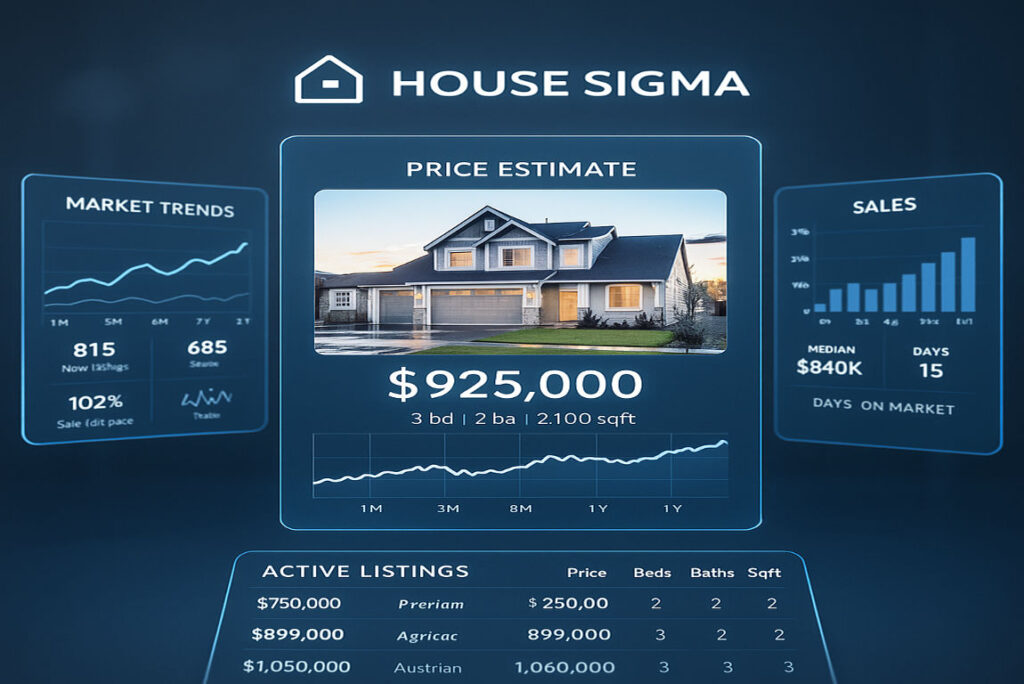Accurate home pricing is one of the most critical aspects of real estate transactions. Whether you’re buying, selling, or simply exploring the market, understanding the value of a property is essential for making informed decisions. In recent years, tools like House Sigma have gained popularity for their ability to provide quick and accessible property valuations. But how reliable is this tool?
What is House Sigma?
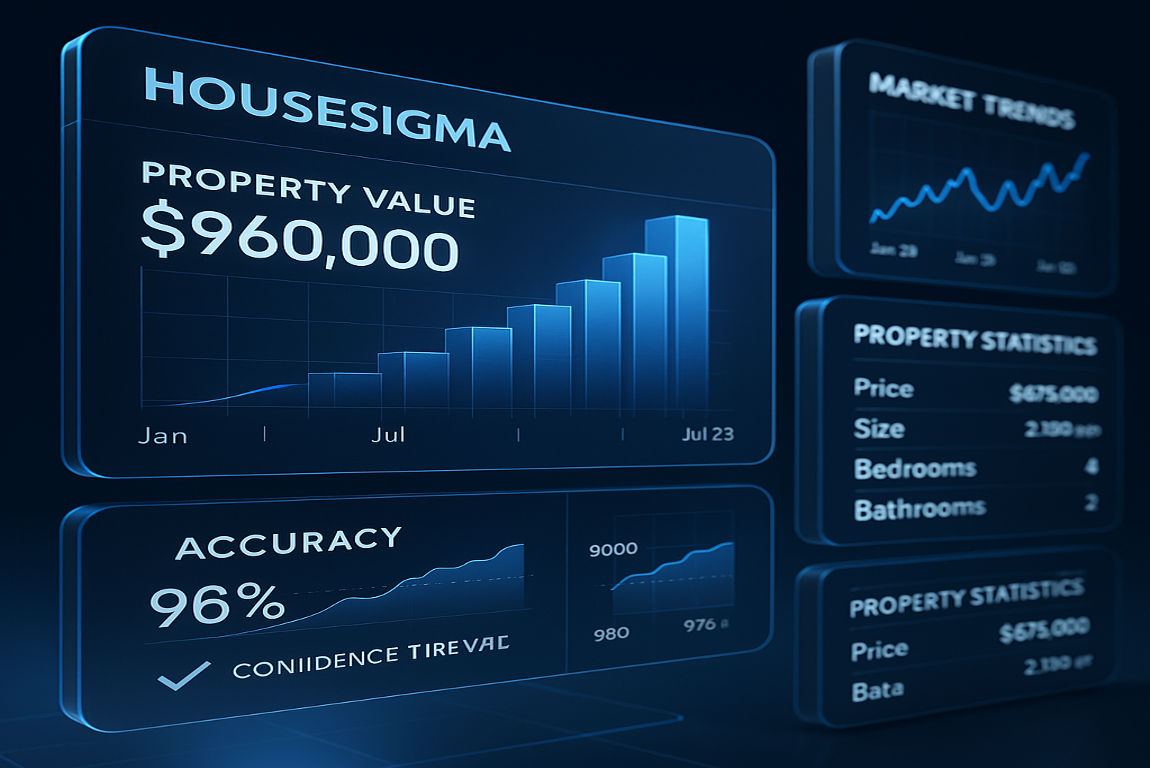
House Sigma is a real estate platform designed to help users access property valuations, market trends, and neighbourhood insights. It’s particularly popular in Canada, where it has become a go-to tool for buyers, sellers, and investors looking for quick property data.
Features of House Sigma
House Sigma offers a range of features that make it a valuable resource for real estate enthusiasts:
- Property Valuations: The platform provides estimated home prices based on its proprietary algorithms.
- Market Data: Users can access historical sales data, price trends, and market comparisons to inform their decisions.
- Neighbourhood Insights: House Sigma offers detailed information about neighbourhoods, including schools, amenities, and demographic data.
How Does House Sigma Work?
House Sigma collects data from multiple sources, including public records, the Multiple Listing Service (MLS) data, and other real estate databases. It uses advanced algorithms to analyze this data and generate property valuations.
The platform is also recognised for its user-friendly interface, which enables easy navigation and access to the information users need. Whether you’re a first-time buyer or a seasoned investor, House Sigma simplifies the process of researching properties.
How Does House Sigma Estimate Home Prices?
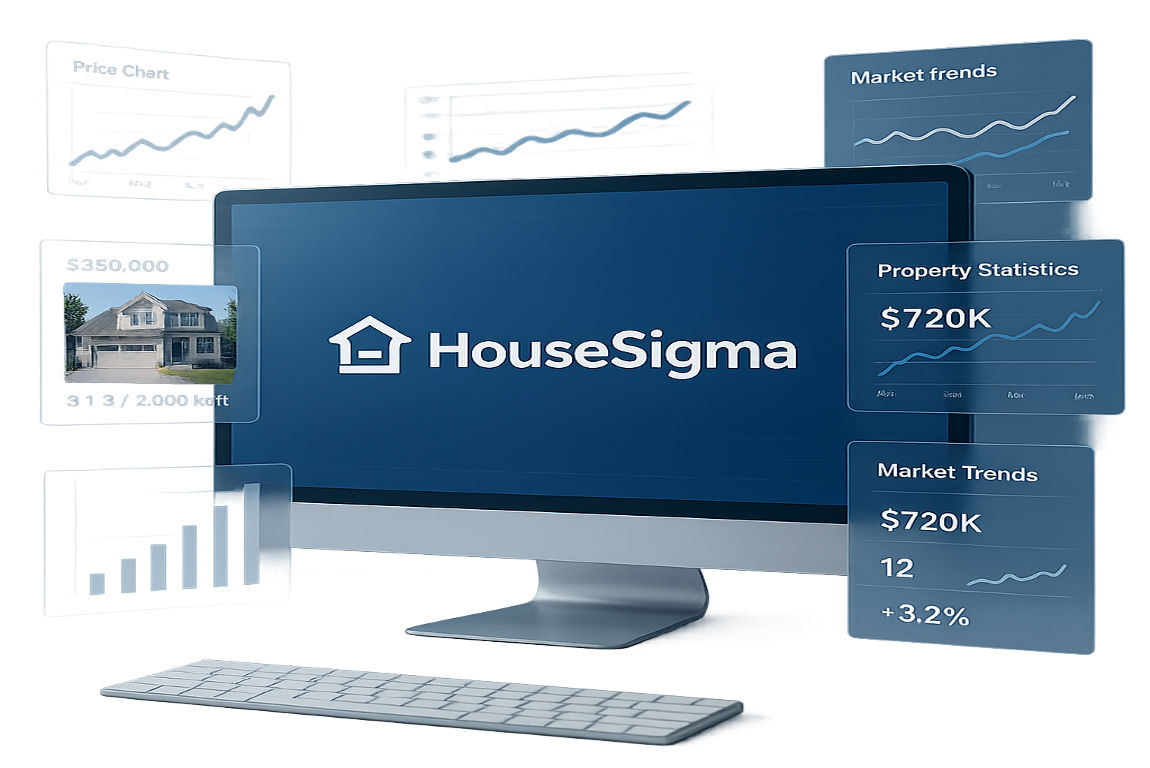
At the heart of House Sigma’s functionality is its Automated Valuation Model (AVM). This technology uses data and algorithms to estimate the value of a property.
You may also read (unlocking gla the key to commercial home real estate).
Key Factors in Price Estimation
- Comparable Sales: House Sigma analyzes recent sales of similar properties in the area to determine a property’s value.
- Market Trends: The platform considers broader market trends, such as rising or falling home prices, to adjust its estimates.
- Public Data: Information from public records, such as property size, age, and location, is factored into the valuation.
Limitations of Algorithmic Pricing
While House Sigma’s AVM is powerful, it has its limitations:
- Renovations and Upgrades: The algorithm cannot account for recent renovations, high-end finishes, or unique features that may increase a home’s value.
- Home Condition: Factors like staging, cleanliness, and overall condition are not considered.
- Dynamic Market Changes: In fast-moving markets, the data may not reflect real-time changes.
Even House Sigma acknowledges these limitations, stating that its estimates should be used as a starting point rather than a definitive value.
Evaluating the Accuracy of House Sigma
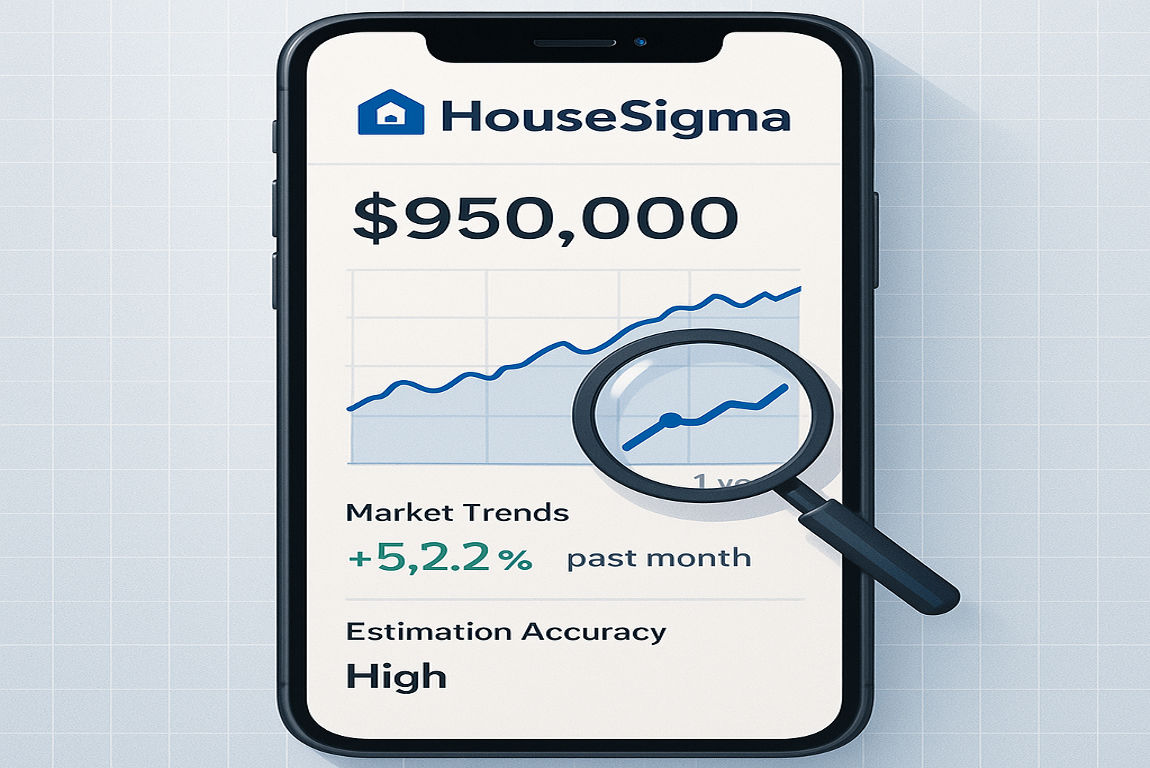
The big question remains: Is House Sigma accurate? Let’s break this down by looking at reported accuracy rates, user feedback, and expert opinions.
Reported Accuracy Rates
House Sigma claims a median error rate of 3.2% for on-market homes and 7.52% for off-market properties. While these figures suggest a reasonable level of accuracy, they also highlight the potential for discrepancies, especially for properties not currently listed.
Common Critiques
Despite its popularity, House Sigma has faced criticism from users and real estate professionals:
- Overvaluation or Undervaluation: Some users report that the platform’s estimates can significantly overvalue or undervalue properties.
- Lack of Real-Time Updates: In a dynamic market, House Sigma’s data may lag behind actual market conditions.
- No Local Expertise: Unlike a realtor, House Sigma cannot provide personalized insights or account for hyper-local market nuances.
Comparison with Realtor Valuations
Realtors often rely on MLS data and in-person evaluations, which can provide a more nuanced understanding of a property’s value. While House Sigma offers convenience, it lacks the human expertise that realtors bring to the table.
Anecdotal Evidence
Many users on forums and review sites share mixed experiences with House Sigma. Some praise its ease of use and accessibility, while others caution against relying solely on its estimates.
When to Trust House Sigma
House Sigma’s estimates are most reliable for:
- Properties in neighbourhoods with a high volume of recent sales.
- Homes with standard features and layouts.
- Initial research and market analysis.
However, for unique or high-value properties, it’s best to consult a professional.
Pros and Cons of Using House Sigma for Home Pricing
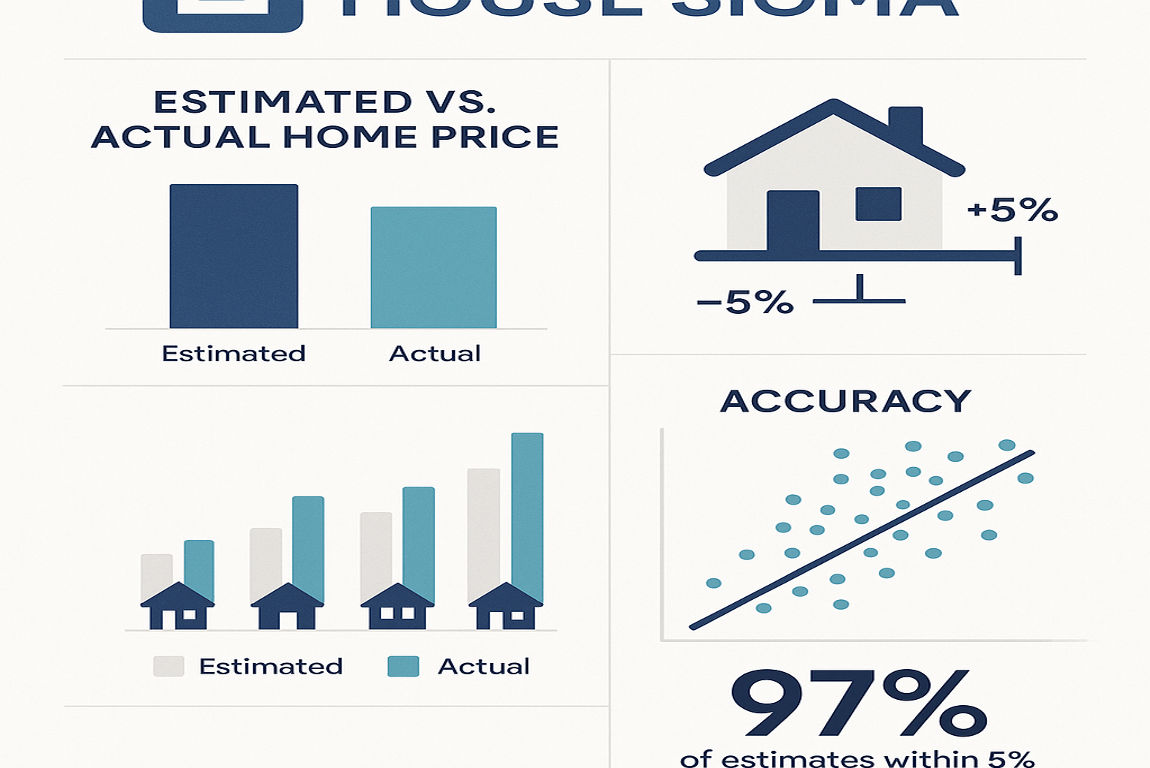
Like any tool, House Sigma has its advantages and disadvantages.
Pros
- Accessibility: House Sigma is free to use and available to anyone with an internet connection.
- Comprehensive Data: The platform offers a wealth of information, ranging from property valuations to neighbourhood neighbourhood insights.
- User-Friendly Interface: Its intuitive design makes it easy for users to find what they need.
- Market Awareness: House Sigma helps users understand market trends and property values.
You may also read (can heavy rain really cause plumbing problems in homes).
Cons
- Data Accuracy Concerns: The reliance on algorithms and public data can lead to inaccuracies in the data.
- Lack of Personalization: House Sigma cannot replace the expertise of a local realtor.
- Missing Factors: Renovations, home condition, and unique features are not considered in the estimates.
- Outdated Information: In fast-moving markets, the data may not reflect current conditions.
How to Use House Sigma Effectively
To get the most out of House Sigma, it’s essential to use it strategically.
Tips for Effective Use
- Start with Research: Use House Sigma as a starting point to understand market trends and property values.
- Cross-Check Data: Compare House Sigma’s estimates with MLS listings and realtor valuations to ensure accuracy and consistency.
- Consult Professionals: For a more accurate valuation, work with a local real estate agent or appraiser.
- Analyse Neighbourhood Trends: Utilise the platform’s neighbourhood data to evaluate the broader market.
- Engage with Experts: House Sigma offers licensed representatives who can provide additional insights.
By combining House Sigma’s data with professional advice, you can make more informed real estate decisions.
SEO Tips for Real Estate Blogs Featuring Tools Like House Sigma
If you’re a real estate professional or blogger, incorporating tools like House Sigma into your content can boost your SEO performance.
Key Strategies
- Focus Keywords: Use keywords like ‘House Sigma accurate ‘ and ‘home pricing tools ‘ naturally throughout your content.
- Content Hubs: Create a series of articles around real estate pricing, market trends, and tools.
- Local SEO: Optimize for local search terms to attract users in specific markets.
- E-E-A-T: Demonstrate expertise, experience, authority, and trustworthiness in your content.
- Visuals and Data: Include charts, tables, and infographics to enhance reader engagement.
You may also read (transform your home with creative bedroom ideas).
